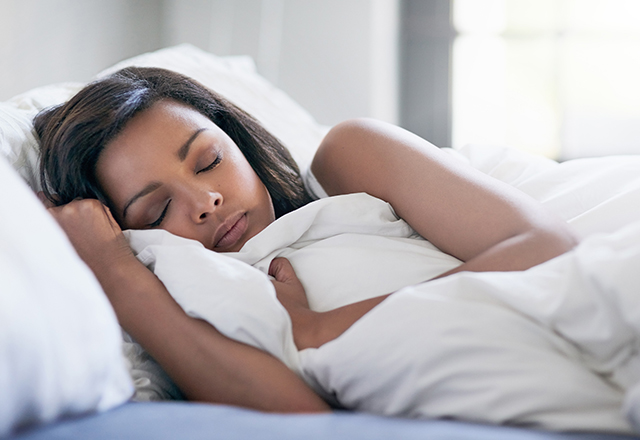Sleep apnea is a serious sleep disorder that affects millions of people worldwide. It can have a profound impact on your health and quality of life, but the good news is that it is treatable. One of the treatment options for sleep apnea is the use of oral appliance sleep apnea, commonly referred to as oral appliances for sleep apnea. However, not everyone with sleep apnea may need these devices, and knowing when to seek medical attention for sleep apnea is crucial. In this article, we will explore the various scenarios in which you should consider seeking medical assistance for sleep apnea, with a focus on the role of oral appliances in its treatment.
Understanding Sleep Apnea
Before we delve into when to seek medical attention, let’s first understand what sleep apnea is. Sleep apnea is a sleep disorder characterized by repeated interruptions in breathing during sleep. These interruptions, known as apneas, can last for a few seconds to over a minute and can occur numerous times throughout the night. There are three main types of sleep apnea:
Obstructive Sleep Apnea (OSA): This is the most common form of sleep apnea and occurs when the muscles in the throat relax excessively, causing a blockage in the airway.
Central Sleep Apnea: This type of sleep apnea is less common and is related to a failure of the brain to send the proper signals to the muscles that control breathing.
Complex or Mixed Sleep Apnea: This is a combination of both obstructive and central sleep apnea.
Sleep Apnea Can Have Serious Health Consequences If Left Untreated, Including:
High blood pressure
Heart disease
Stroke
Type 2 diabetes
Daytime fatigue and impaired concentration
Increased risk of accidents, including car accidents
Decreased quality of life
Given these potential health risks, it’s essential to know when to seek medical attention for sleep apnea.
When To Seek Medical Attention For Sleep Apnea
Persistent Symptoms:
If you or a loved one experience persistent symptoms of sleep apnea, it’s time to seek medical attention. Common symptoms include loud snoring, choking or gasping for breath during sleep, excessive daytime sleepiness, difficulty concentrating, morning headaches, and irritability. These symptoms can significantly impact your daily life and overall well-being.
Witnessed Apneas:
If someone observes that you stop breathing or have significant pauses in your breathing while you sleep, it is a strong indication of sleep apnea. This is particularly concerning and should prompt you to seek medical help.
Risk Factors:
Certain risk factors increase the likelihood of developing sleep apnea. These include obesity, a family history of sleep apnea, being male, being older, having a large neck circumference, and having a narrowed airway due to genetics or tonsil size. If you have one or more of these risk factors, it’s important to be vigilant about your sleep patterns and consider seeking medical advice.
Health Complications:
If you have been diagnosed with sleep apnea and are experiencing related health complications such as high blood pressure, heart disease, or type 2 diabetes, it’s crucial to work closely with your healthcare provider. Proper management of sleep apnea can help improve these conditions and prevent further health deterioration.
Failed Lifestyle Modifications:
In mild cases of sleep apnea, lifestyle modifications such as losing weight, avoiding alcohol and sedatives, and changing sleep positions may be recommended as initial treatments. However, if these lifestyle changes do not lead to significant improvement in your sleep apnea symptoms, it’s time to explore more advanced treatment options, including oral appliances.
The Role Of Oral Appliances For Sleep Apnea
Oral appliances are a valuable treatment option for certain individuals with sleep apnea, especially those with mild to moderate obstructive sleep apnea. These devices are designed to keep the airway open during sleep by repositioning the jaw and tongue. Here are some scenarios where you should consider using oral appliances for sleep apnea:
Intolerance to CPAP Therapy:
Continuous Positive Airway Pressure (CPAP) therapy is a highly effective treatment for sleep apnea. However, some individuals find it uncomfortable or have difficulty adapting to wearing a CPAP mask during sleep. In such cases, oral appliances can be a suitable alternative.
Mild to Moderate Sleep Apnea:
For individuals with mild to moderate obstructive sleep apnea, oral appliances can be a primary treatment option. They are less invasive than other treatments and can significantly reduce the frequency of apneas and improve sleep quality.
Combination Therapy:
In some cases, healthcare providers may recommend using oral appliances in combination with other treatments, such as CPAP therapy or positional therapy. This approach can provide enhanced benefits and improve treatment outcomes.
Travel Convenience:
Oral appliances are portable and do not require electricity, making them a convenient option for individuals who travel frequently. This allows you to continue your sleep apnea treatment regimen even when you’re on the go.
It’s important to note that the selection of the most suitable treatment, including the use of oral appliances, should be made in consultation with a healthcare provider specializing in sleep medicine. They can assess your specific condition, preferences, and needs to determine the most appropriate course of action.
Conclusion
Sleep apnea is a serious sleep disorder that requires prompt medical attention to prevent health complications and improve your overall quality of life. If you experience persistent symptoms, witnessed apneas, have risk factors, or are dealing with health complications related to sleep apnea, it’s crucial to seek medical help.
Oral appliances for sleep apnea can be an effective treatment option, especially for individuals who are intolerant to CPAP therapy or have mild to moderate obstructive sleep apnea. However, the decision to use oral appliances should be based on a comprehensive evaluation by a healthcare provider specializing in sleep medicine.
Remember that sleep apnea is a treatable condition, and seeking medical attention can lead to better sleep, improved health, and a higher quality of life. Don’t hesitate to reach out to a healthcare professional if you suspect you may have sleep apnea or if you’re experiencing ongoing sleep-related issues. Your well-being is worth the investment in better sleep.



